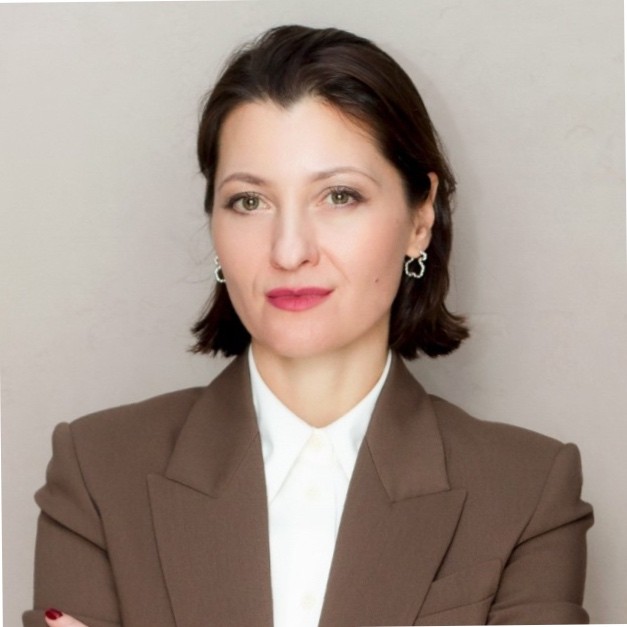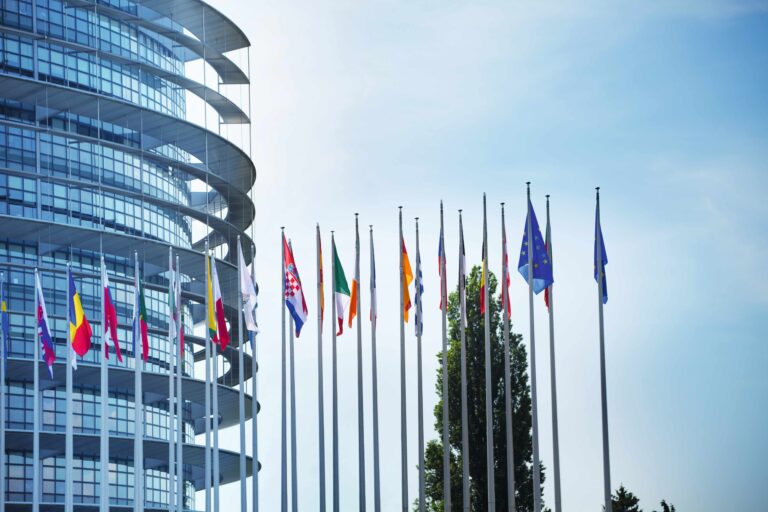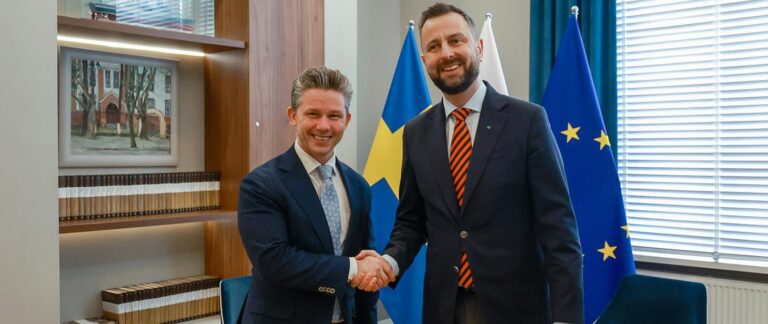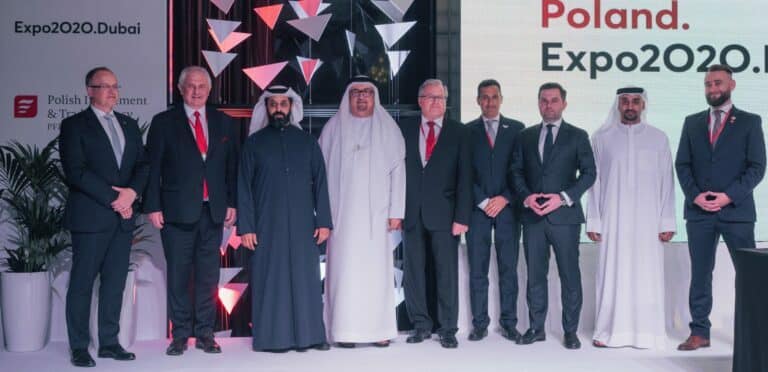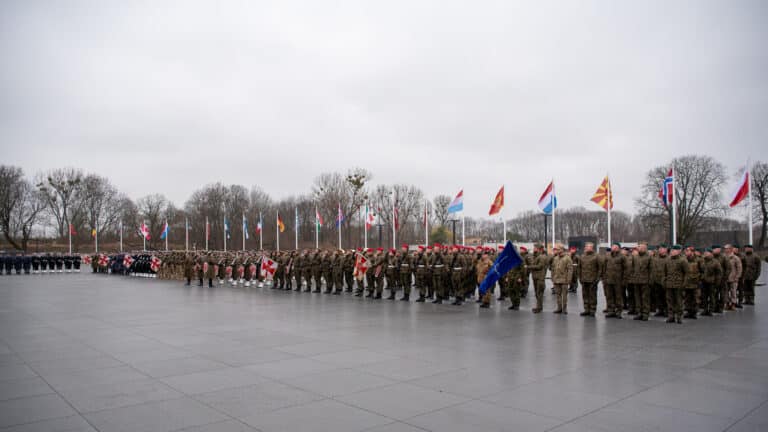Together. Resilient. Europe.
Interview with Her Excellency Madame Božena Forštnarič Boroje, Ambassador of Slovenia to Poland by Katarzyna and Andrzej Braiter.
Madame Ambassador, what was your impression versus maybe the expectations at the time you came to Poland?
Firstly, I have to say I am very honored to be here in Poland in the capacity of Slovenian ambassador. Our countries have really a lot in common – the Slavic roots and similarities in our languages, shared historical experiences, customs and culture, traditions and values, even the landscape. OK, maybe you do not have the Alps and Mediterranean Sea but you definitely have plenty of other natural beauties. Just recently our family, including the dog, were in Gdynia over the weekend. We really enjoyed it. On so many levels, living here in Poland really feels very much like being at home.
As for our countries, I really think that both have achieved enormously a lot in the last 30 years. Merely just simply looking around, we see enormous progress in Poland. And it is not just the landscape of cities, also the technological progress is impressive, the transport and other infrastructure. Given the size of Poland compared to Slovenia, sometimes I cannot even imagine how quickly countries can develop. In Poland I really feel that ‘hunger’ for wanting, achieving, doing more, doing better. It’s a true driving force for business. That is a great spirit and the capital that Poland holds.
Was there any particular reason for accepting the post of the ambassador in Warsaw? Did you have any influence on this decision of your minister of Foreign Affairs and your country’s authorities?
To answer that I have to go slightly back. My previous diplomatic postings abroad were outside Europe. The first one was Australia, which is as far as one can go from Europe, though I do not regret it not even a bit. Australia for me is still one of the most beautiful countries I have ever been to and I feel privileged to have the opportunity to serve there. My second posting abroad was in Turkey, whereas from there we non-residentially also covered some of the Middle East countries. The natural and working environment there was quite different from my experience in Australia, nevertheless still a fantastic one.
After that and becoming a mother, for the next posting I wanted to stay somewhere closer to home, somewhere in Europe. Having direct flights between the capitals was also a factor. Though, I also need to admit that Poland was, for various reasons but mostly the work-related ones, always very high on my wish list. For me in given times it was a very appealing place to be. So, in the end it was a combination of things.
Is it easier for a woman to work in the diplomatic service than men? Is it easier for a woman to achieve the goals that diplomacy sets itself?
When it comes to the matter of gender, there are always certain stereotypes in place, and diplomacy is no exception. If one would look at diplomacy 20, 30 or even more years ago, you would probably expect an ambassador to be a man of a certain age and definitely with grey hair. Today the situation is quite different. Not only when it comes to age and the grey hair but also the gender. In terms of women’s presence in diplomacy a lot has changed for the better, though I would also say that we are not completely there yet.
The statistical fact is that there are more active women in business today than ever before. That is also reflected in diplomacy. In the current diplomatic corps in Poland there is probably somewhere about 25% of female ambassadors. That might not be the number we would wish to see but it is definitely growing, so the trend is positive. As far as Slovenian foreign service is concerned, the number of female ambassadors has substantially grown in the last ten years’ period and I hope it continues this way.
What are Slovenia’s priorities of the Presidency in the UE and some key initiatives that you are launching?
Slovenia took over the Presidency of the Council of the European Union on the 1st of July. This is the second time that Slovenia holds the Presidency. Our six-months programme runs under the slogan ‘Together. Resilient. Europe.’, which already gives a flavour of what we focus on.
As we are already a halfway through let me first say that we are very happy to see in these challenging COVID times that the first three months were successfully carried out and that all informal ministerials that had been planned were held all in-person in Slovenia. Bringing all the politicians together to discuss matters not only virtually but also in person, is quite an achievement. And having talks in person is completely different from the virtual one.
Our programme is consistent with the 18-month programme of the Council, which covers the period of the Trio Presidency (Germany, Portugal and Slovenia), and details Slovenia’s main priorities for its activities during the Slovenian Presidency from 1 July to 31 December 2021.
The priorities are set out in four main chapters. First one focuses on the resilience, recovery and strategic autonomy of the European Union. Developing or upgrading plans and instruments to reinforce the resilience to pandemics and cyberattacks, whereas the economic recovery after the pandemic should be based on a digital and green transition.
The second priority focuses on the Conference on the Future of Europe, which officially began on 9 May 2021 and is expected to conclude in the spring of 2022 under the French EU Presidency. Here I can add that in the beginning of September Slovenia organised one of our main high-level events, called the Bled Strategic Forum. The discussion of the highest level tackled many questions concerning the future of Europe and also how that future is perceived by countries in our eminent neighbourhoods. Among participating high guests, there was also Polish prime minister Mateusz Morawiecki.
Our third priority is the union of the European way of life, the rule of law and equal criteria for all. The fourth one puts in focus a credible and secure European Union that is capable of ensuring security and stability in its neighbourhood.
There is a strong desire to strengthen transatlantic relations and also to devote a special attention to the Western Balkan countries, their future in Europe and the credible continuation of the EU enlargement process. In October Slovenia hosted the EU–Western Balkans Summit. EU leaders agreed on the Brdo declaration and confirmed the EU perspective for these countries. Additionally we passed on many other positive messages for people living in the region, including an investment plan totalling €30 billion.
We still have one summit coming, the EU-Eastern Partnership summit in December. It could be very interesting, especially for Poland and the Baltic states since that is your eminent neighbourhood.
Overall, in general terms I would say that the planned legislative acts are in the pipeline and going well, so hopefully at the end of the day most of our actions will be translated into something that we could be very happy with.
Your country is already 17 years in the European Union like Poland. What role do you see for your country, your nation and for yourself in the next few years?
That is always a tricky question when you have to look into the future and do some prognosis, almost as if you are hoping to have a crystal ball.
Prior to joining the European Union, we had a national consultative referendum and almost 90% of Slovenian voters supported it. That result reflected the wish of Slovenians that we wanted to be a part of that common European family. And if I may say so, that desire is still there, very much present and alive today as then. Of course, in the real world not everything is always perfect, but we are all aware and mature enough to accept that the only way to go forward is to work together, to overcome difficulties together so we may then also share our success and happiness together.
Perhaps the last ten years were not the easiest ones in the European Union. We have been faced with some serious crisis situations (financial and migration crisis, Brexit, Covid-19 situation, environmental issues). Somehow it would be good to digest all that also with some serious self-reflection and perhaps even self-criticism, so we could focus on what is most important for our future European generation, our children. By arguing and splitting, we are not going to get far. Slovenia is no exception here.
Just looking at the whole Covid-19 situation, in a way it was and still is kind of a wake up bell. There are for example certain liberties and rights that we are accustomed to in Europe, certain standards and the way of living. They are a part of us without even thinking but all that should not be taken for granted. We should always cherish and nourish them, strive for them, so we may also pass them on to the next generation.
On a more personal note, firstly our EU Presidency needs to come to its closure. And it will, I am already convinced, very successfully. After that there will be more time to travel around Poland and to further discover and enjoy your wonderful country as well as to spend more time with my family. During my time in Poland, I visited many places but mostly it was business related. I’m hoping to travel more without a rush to fully enjoy your beautiful nature, cuisine and even wines.
As to what is on my mind when I finish this diplomatic post in Poland, which will be next summer. Well, once back home I would love to take some time off and spend it with my family. This last year was quite demanding for them and having some quality time together would do us all good.
What are your professional goals for the time of your diplomatic mission?
I am one of those people that do not really plan too much ahead. I usually just go along, stay open for different opportunities. Sooner or later something that interests me always comes up. Throughout all these years of experience, I gained enough knowledge and self-confidence that helps me to manoeuvre my life. That is at least how I function and it worked so far.
What should we know about Slovenia’s economy, society and business so we are able to properly define the areas of cooperation?
When it comes to the bilateral cooperation between our two countries, let me firstly express my utter satisfaction. Political ties between Slovenia and Poland are strong on all levels but especially on the highest one. They are really friendly and very dynamic. That excellent collaboration is also equally present within the framework of the European Union and NATO as well as in some other regional initiatives, such as e.g. The Three Seas Initiative (3SI). No wonder our economic relations are getting stronger each year.
For our economies the benefit of being a part of the EU internal market is enormous. The very similar business environments, financial discipline, as well as the geographical closeness, plus the cultural one, including language-wise, are also the factors for a strong natural economic growth. Also the structure of our economies is very similar – SMEs are the backbone.
Poland is Slovenia’s top ten foreign trade partner. Our overall bilateral trade for the last year reached almost € 1.9 billion. It is well balanced and over the last decade constantly and steadily increasing. I do hope it continues this way and by looking at the activities that are in place, I would say that my optimism is based on solid grounds.
Slovenian economy is predominantly export orientated, naturally giving its size, and in this way very reflective to what is happening in the European and world’s markets. However, due to that fact it is also very open and eager to find and work on new opportunities. There are plenty of those around. Business opportunities are in the construction sector, energy and renewable energies, IT and new technologies, in the automotive industry and in transport and logistics. The area of transport and logistics in particular is certainly one of the most interesting sectors with considerable potential for further growth.
Thank you madam Ambassador.
Her Excellency Madame Božena Forštnarič Boroje, Ambassador of Slovenia to Poland since September 2018, Slovenia lawyer, civil servant and diplomat. Serving as a diplomat abroad prior to her diplomatic post in Poland, she was a deputy head of mission at the Slovenian embassies in Ankara and Canberra.


